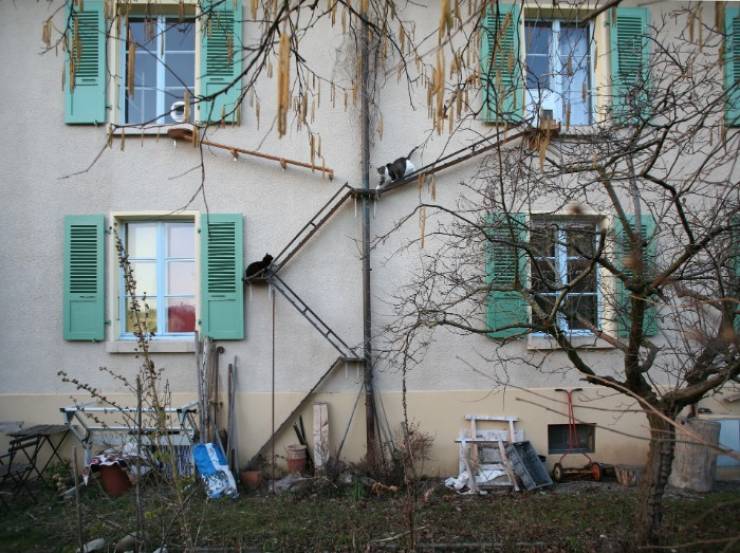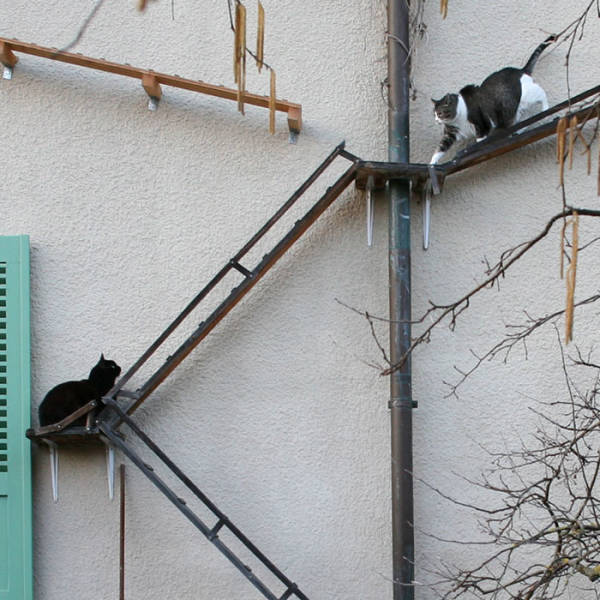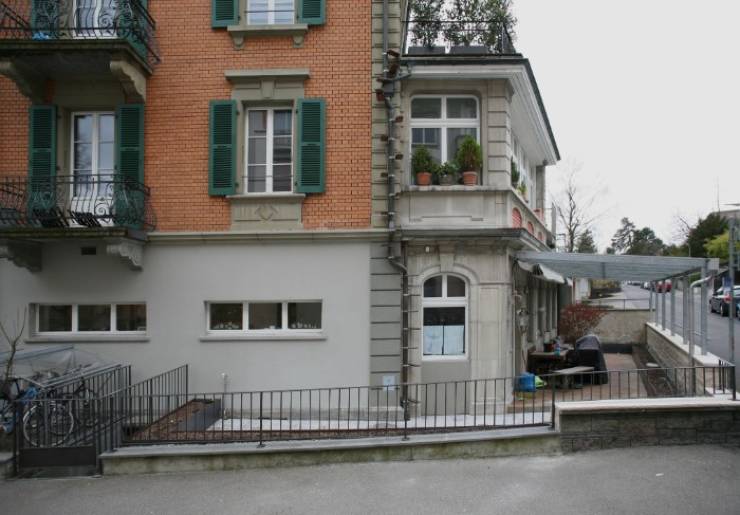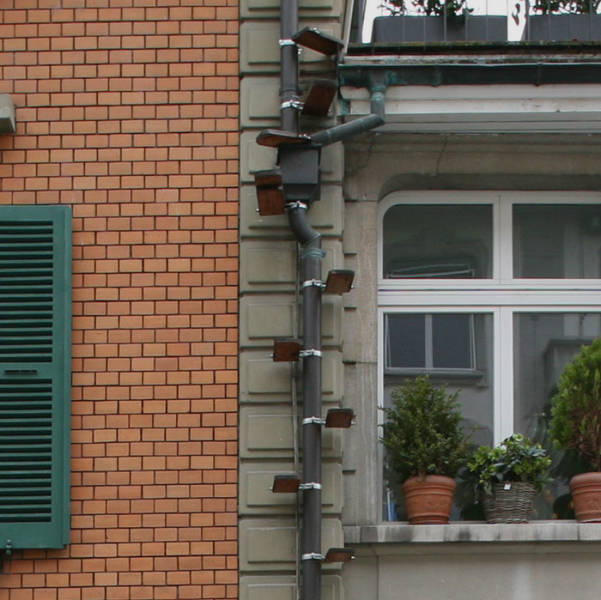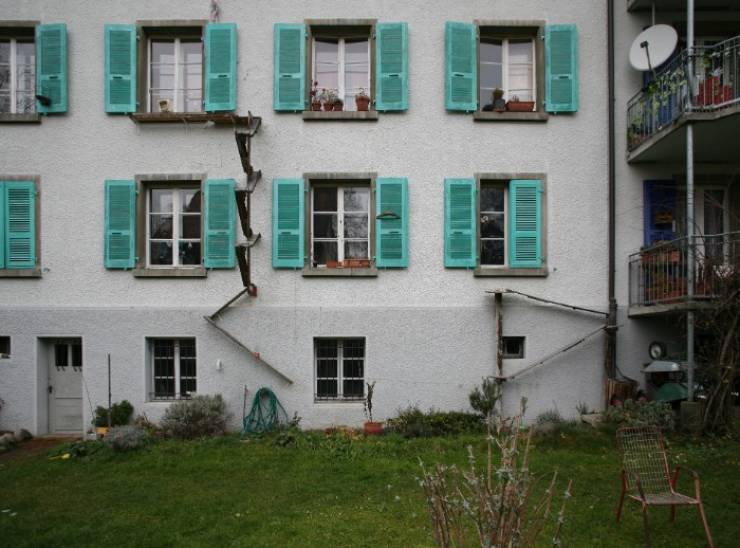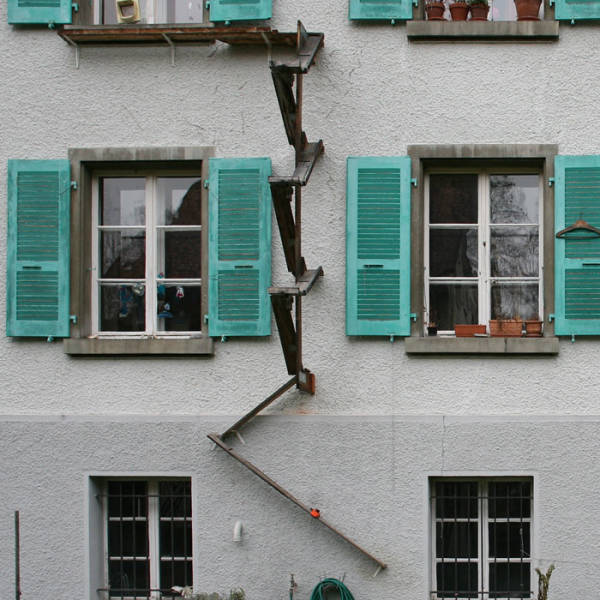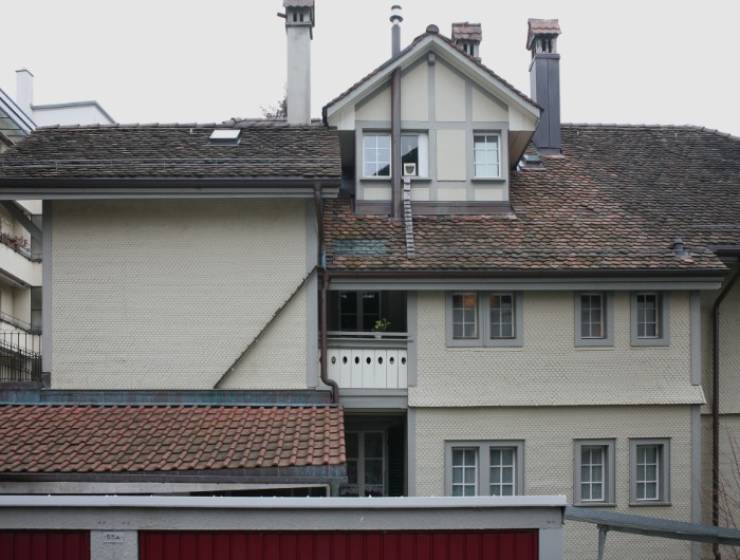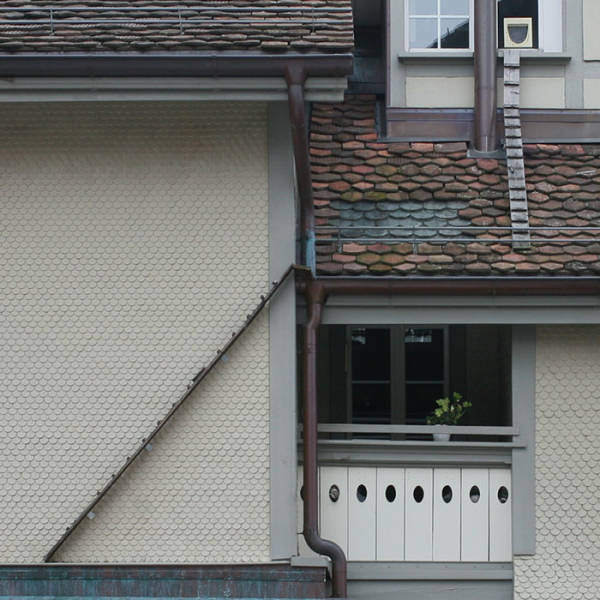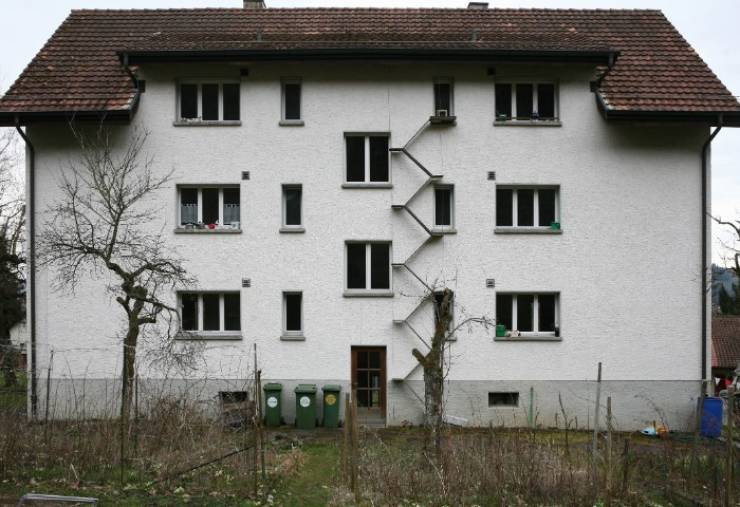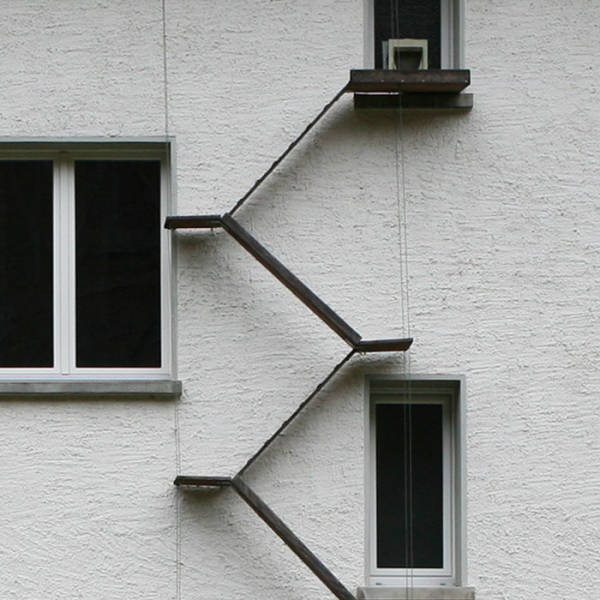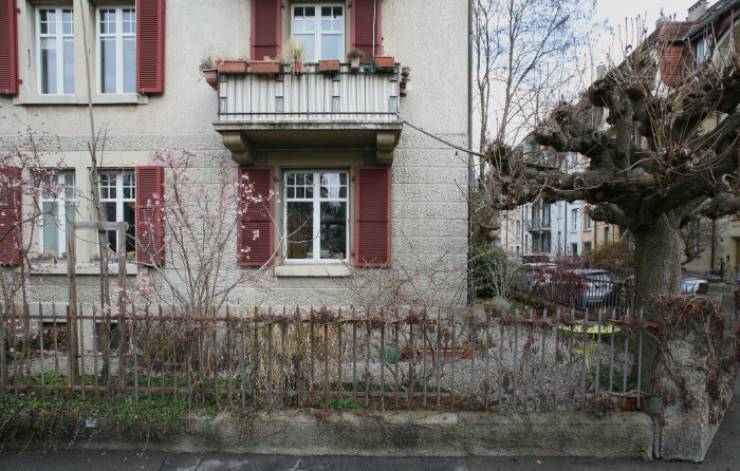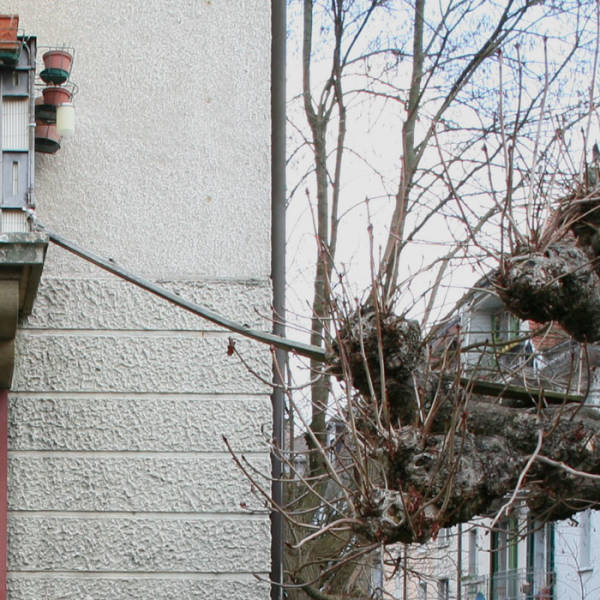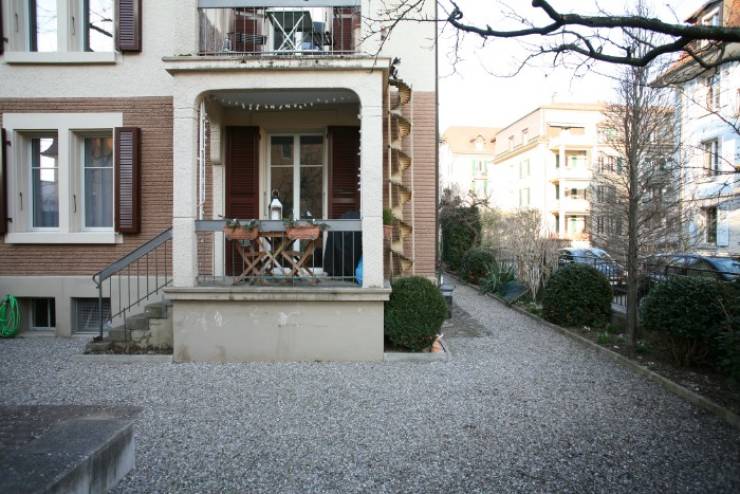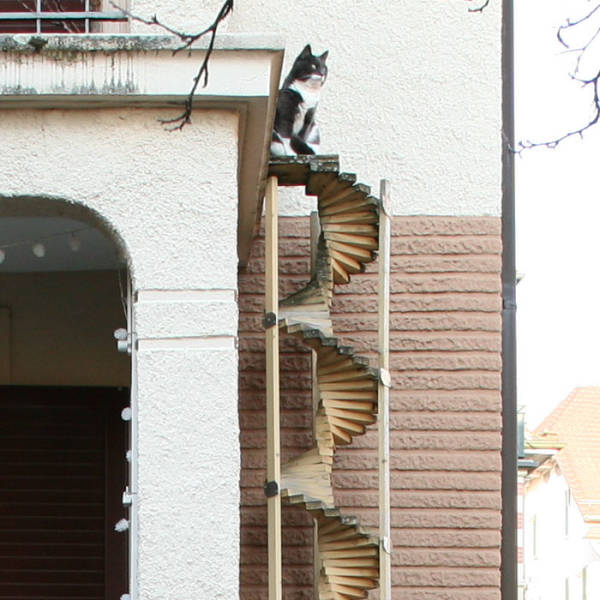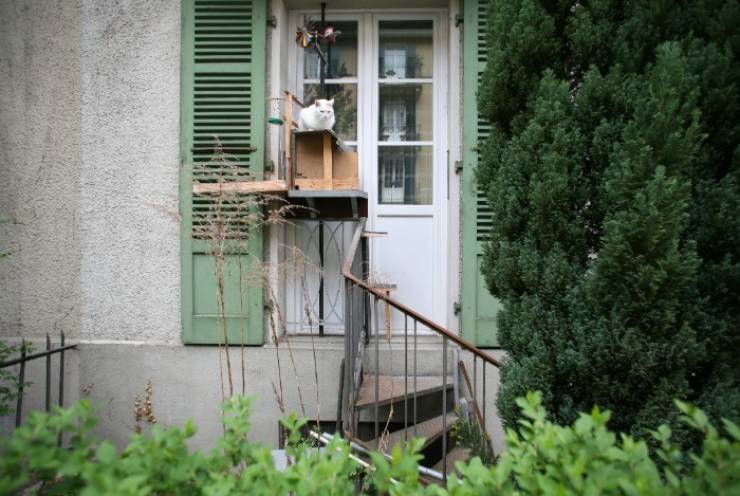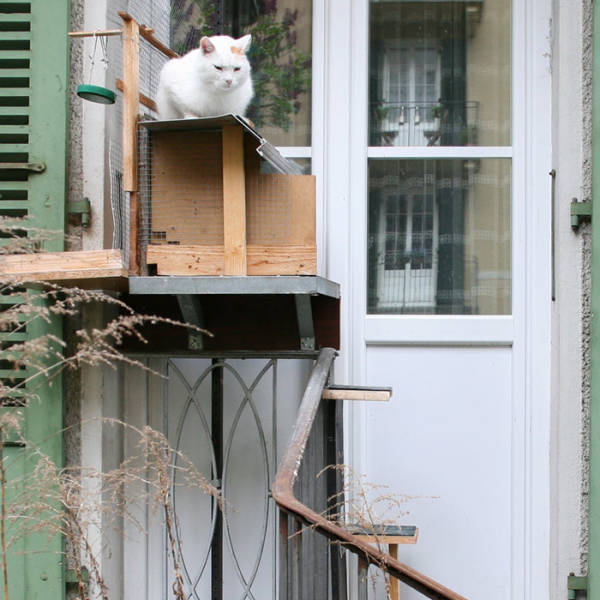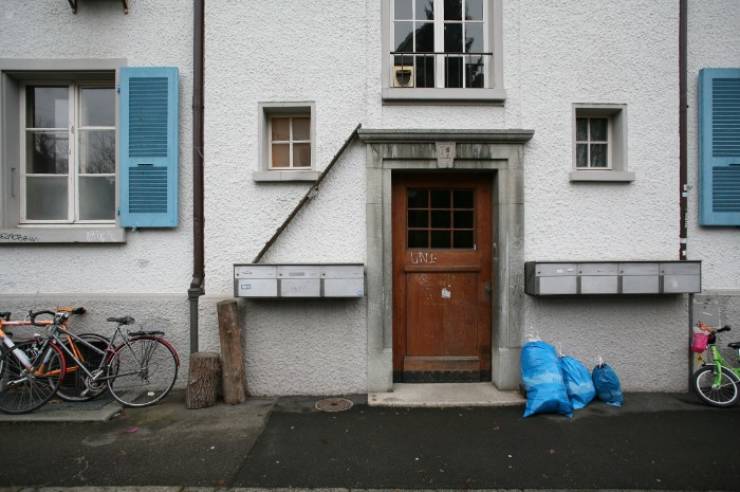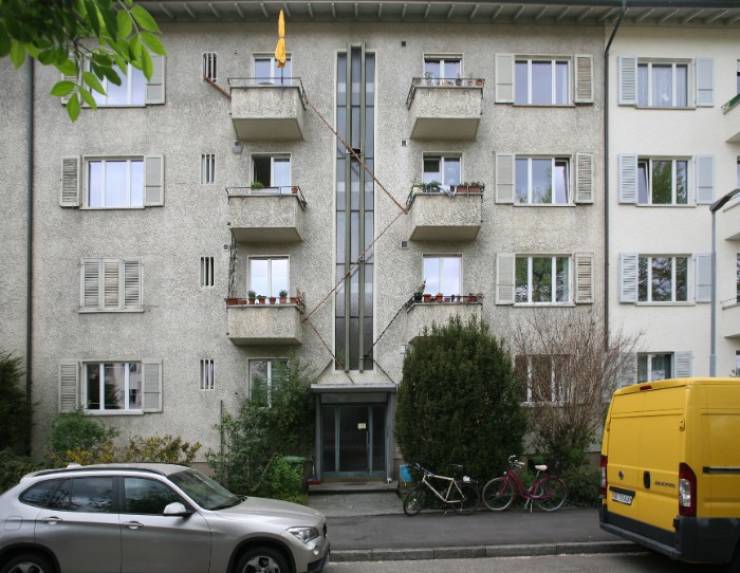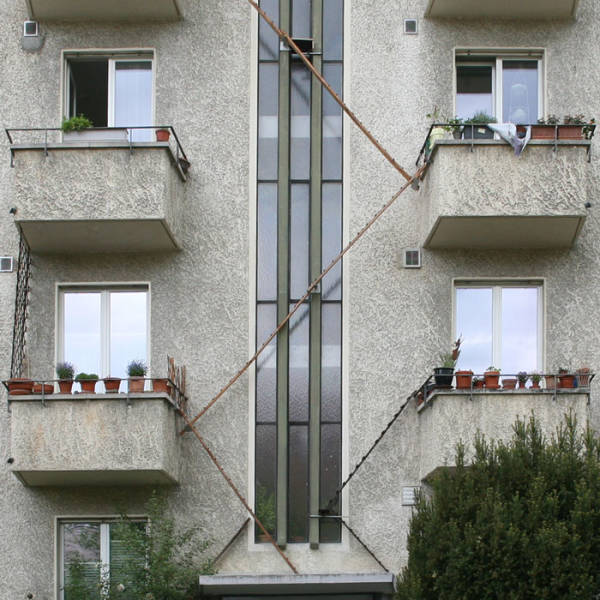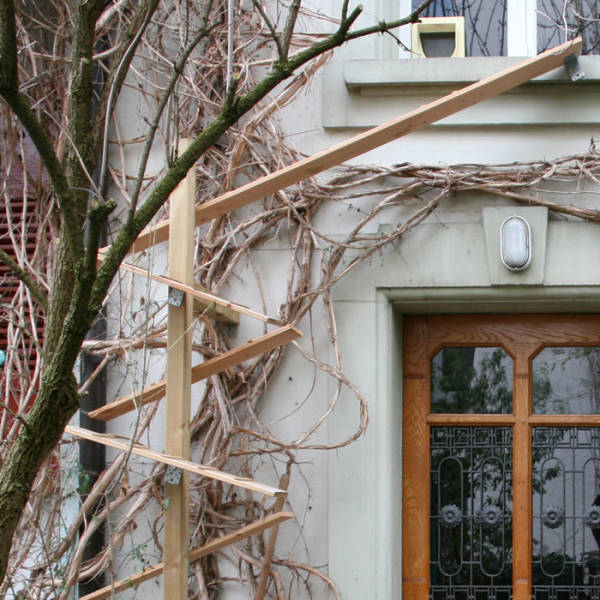The artist uses her home town of Bern as the field for her photographic research and describes the book as: “A closer look at the cat ladders reveals sociological, architectural and aesthetic perspectives, which are elaborated in an accompanying text,” asking questions like, “Whether we humans should really impose the cat ladders we have created, to cats.”
Here, the slats are zigzagged along the wall of the house reaching a length that allows the cat to go to the second floor. A kind of fence protects the cat in the upper area from the fall.
Schuster is a graphic designer, specializing in typography and type design, as well as a writer and teacher and has been working in the field for 15 years. Her expertise has covered the gambit from editorial concepts to concept development to type design. These days she works independently with a focus is on book design and in 2013 founded the imprint Brigitte Schuster Éditeur as a way to “publish personal publications in an independent way and feature projects of her interest.” Brigitte Schuster Éditeur specializes in high-quality books of often limited editions.
Treads attached to the rain pipe lead to the second floor.
Swiss Cat Ladders is the latest from her publishing company and is expected to print in September 2019. “Through a publication, the fugacious and cultural heritage of the cat ladder will be preserved, archived and conveyed to following generations.”
The model of the simple chicken ladder is used here to gain height: It is built in a zigzag upward (left). A base ladder is used with a relatively flat angle. It is mounted on a wooden pole (right).
The majority of cats enjoy being in high places because evolutionarily speaking, it is in their nature. Descendants of Proailurus, the first cat, they are tree-climbing mammals. Today these agile animals don’t need to escape into the trees for safety but they sure do enjoy it and have a flexible musculoskeletal system that provides them with outstanding coordination and balance that allows them to jump high.
The cat must climb upwards, over several roofs, using two cat ladders.
While these whimsical architectural tributes to pets are a sight to behold, cat behaviorist, Anita Kelsey said their cats might not appreciate the effort as much as they should: “They don’t know anything is for them. They like jumping and would be able to see the best route to their home territory whether it’s a ladder, a wall or a pipe.”
A cat-ladder reaching to the second floor. I appears to be quite long due to its many subdivisions.
The cat climbs from the tree to the cat ladder and from there to the balcony.
The picture shows a rarely seen model, a spiral staircase that can be ordered on the Web
Cat stairs with a dwelling place for the cat and possibly other animals. Here is also cat food ready.
Here the mailboxes are used as a support to extend the door sill.
Ladder reaching to the third floor. It is one of the highest ladders seen in Bern.
The vine plantations belonging to the façade are not affected: grapevines and the wood of the cat ladder complement each other.

